Sea Turtle Conservation Program
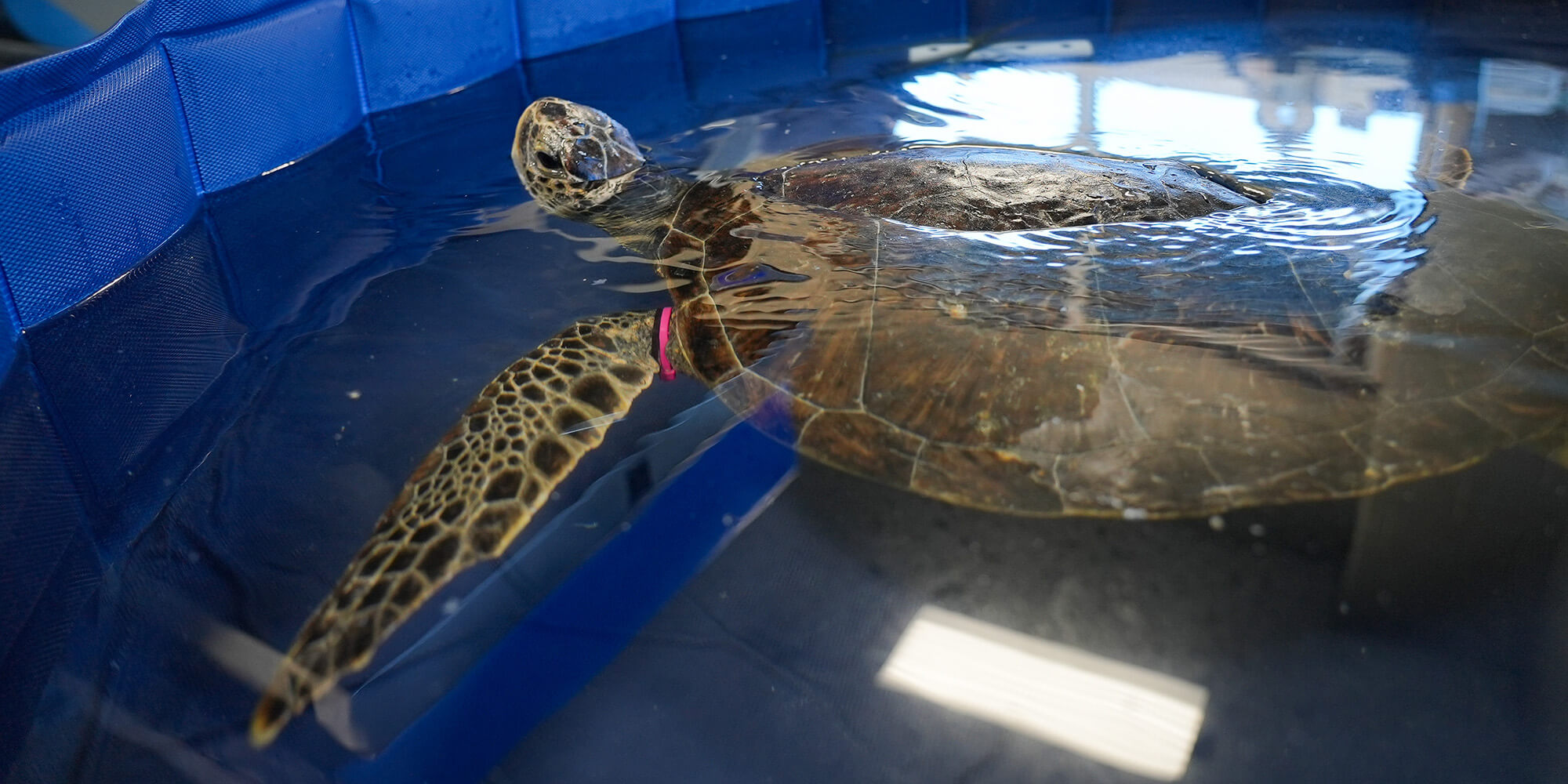
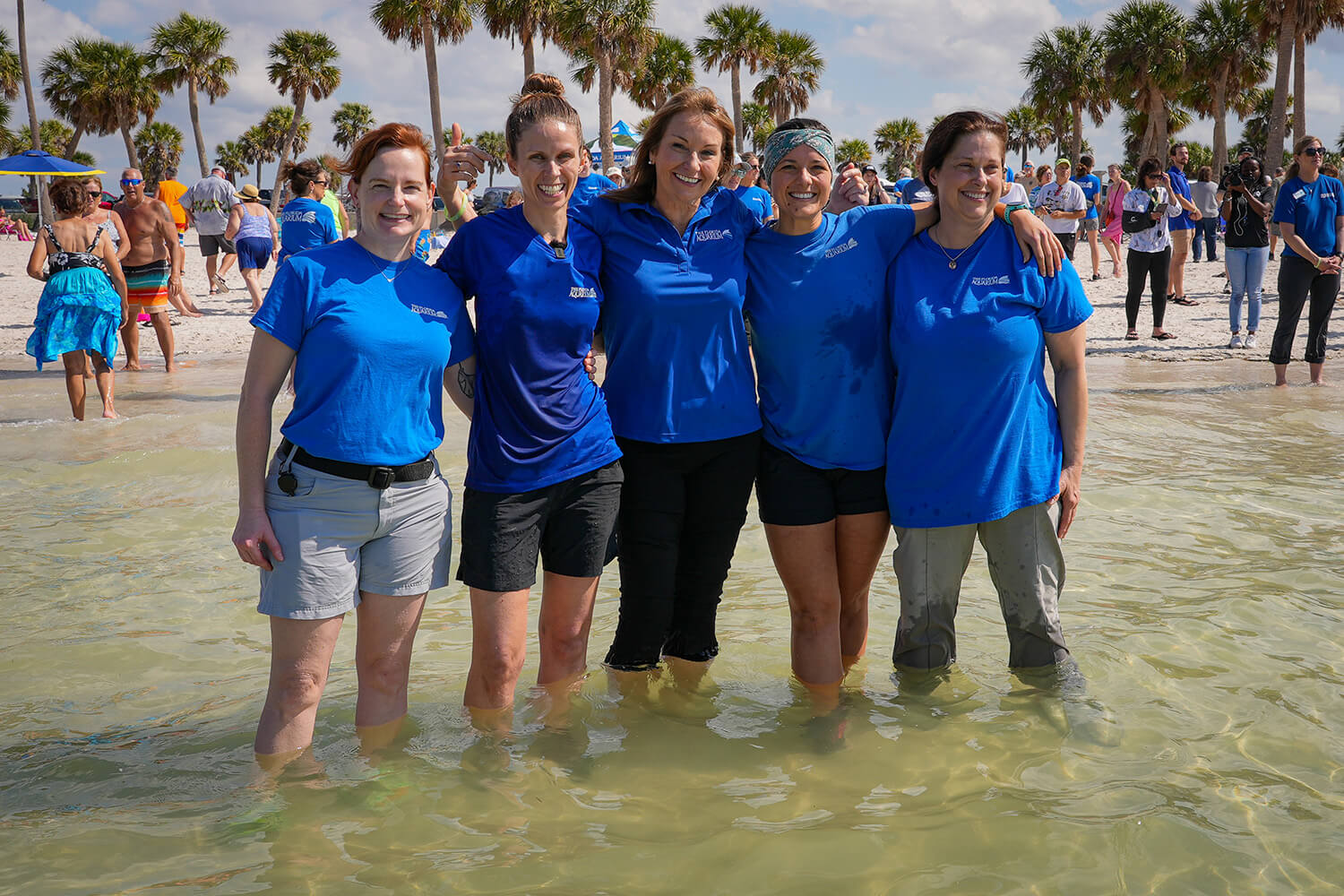
Caring for a Keystone Species
While The Florida Aquarium operates as a best-in-class animal-based destination, our commitment to being Florida’s leading conservation-based aquarium remains at the helm of all we do.
Since 1999, The Aquarium has led extensive rehabilitation and conservation efforts to help protect and restore sea turtle populations. From rescue and rehabilitation to reintroduction and research, our dedicated Animal Response Team continues to work tirelessly to champion these endangered animals and address the factors threatening their survival.
-
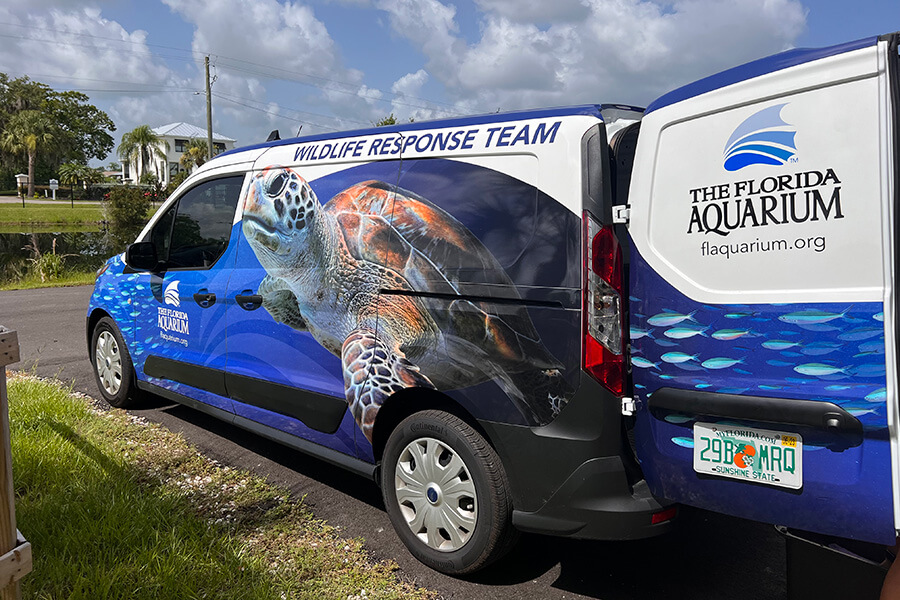
The Challenge
Florida’s coast and surrounding waters are home to five of the seven species of sea turtles: leatherback, loggerhead, hawksbill, Kemp’s ridley, and green. Like many sea turtle populations worldwide, a variety of factors are negatively affecting these species along the Atlantic coast and within the Gulf. Declines in individual sea turtle health and population sustainability can be attributed to factors such as health stressors, disease, boat strikes, habitat loss, food loss, pollution, and climate change.
-
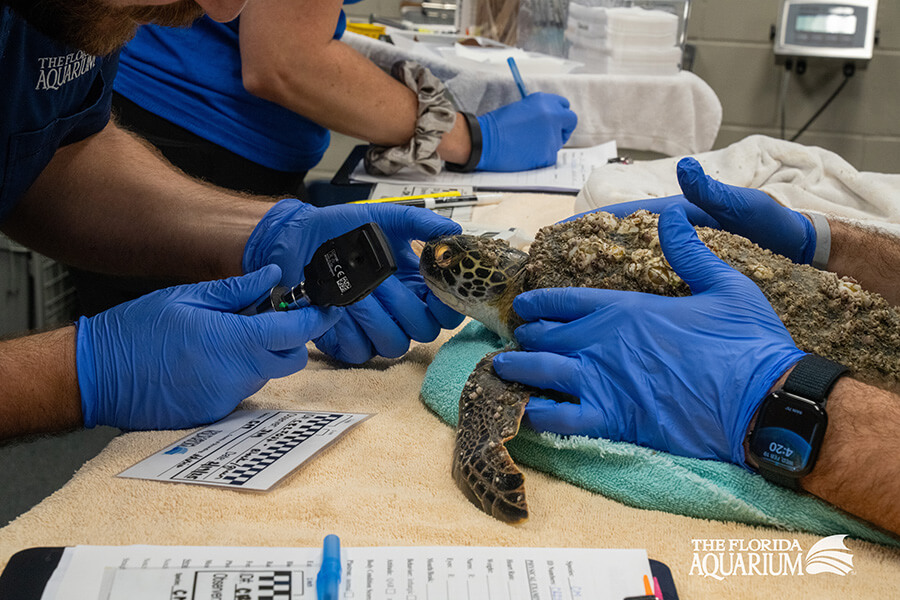
The Approach
Sea turtles are a designated keystone species, which means they play a vital role in our ecosystem. Their influence on the health of habitats such as seagrass beds and coral reefs directly supports the many species that rely on them.
Not only does The Florida Aquarium provide rescue and rehabilitation services for cold-stunned, sick, and injured sea turtles, but we also conduct research on turtles housed in our facility and those in their natural habitats. Our dedicated work to expand our understanding of species-specific behaviors and needs positions us as leaders in advancing reintroduction successes.
The Good News
The Florida Aquarium’s 19,000 sq. ft. Sea Turtle Rehabilitation Center includes 12 recovery pools, a veterinary hospital where guests can view our team in action, and a deep dive pool designed for behavioral assessment and pre-release conditioning of patients before reintroduction into their natural habitat.
In addition, our Sea Turtle Conservation Program strives to gather and align our research data to better understand the relationships between sea turtle well-being and ecosystem dynamics. One way we do this is by supplementing gaps in post-release data by deploying satellite tags on a subset of patients being reintroduced to their natural habitat.
We also participate in research projects with partners in Florida, the Bahamas, and Costa Rica, supporting their in-house health assessment studies of sea turtles with our health and medical expertise. Our work, and our collaborations with Florida Agencies and other non-profit organizations, are designed to maximize efficiencies and achieve more effective conservation outcomes.
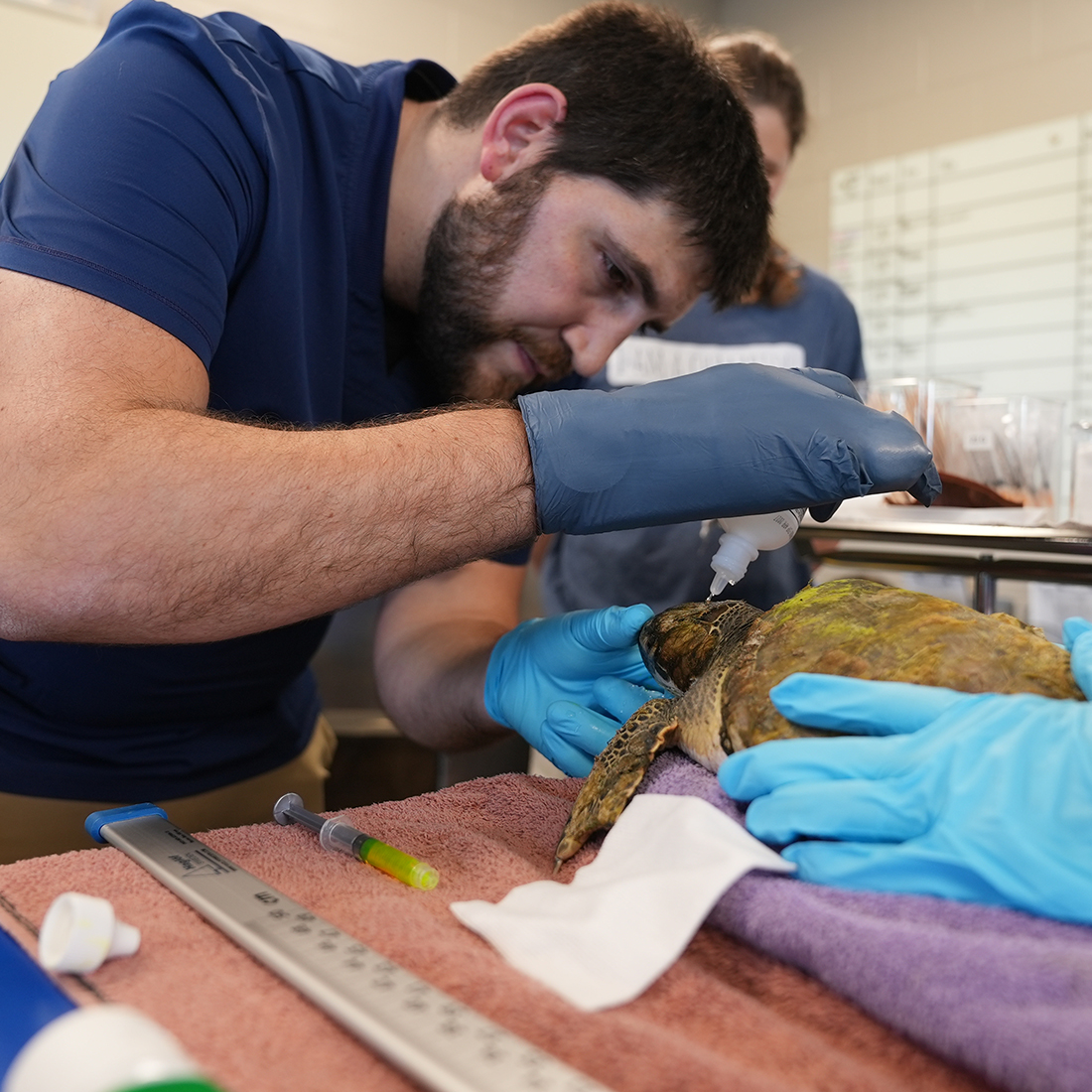
Make a Difference for Sea Turtles
Your support makes a difference in treating and rehabilitating sea turtles. Every stage of each turtles’ journey home, from the moment they arrive at our rehabilitation center to the moment they return to the ocean, would not be possible without the support of many, including you.
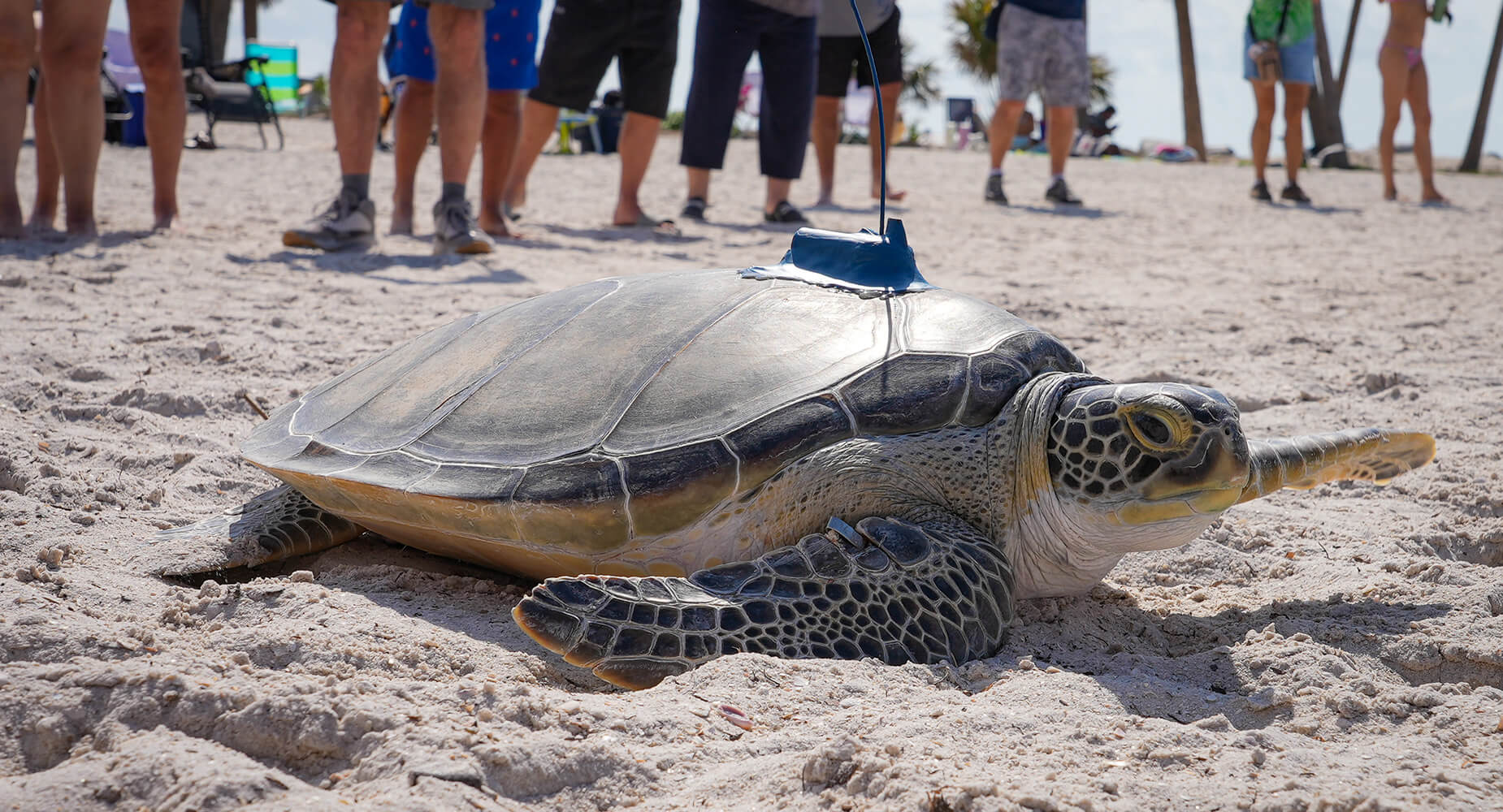
Look at them Go!
We are tracking several of our rehabilitated sea turtles after their triumphant return to the open ocean. Equipped with satellite tracking tags, these turtles are providing critical information about diving, feeding, migration, and activity patterns which may provide key insight for future rehabilitation and conservation efforts.
All sea turtle rehabilitation work conducted by The Florida Aquarium is done with the approval of the Florida Fish and Wildlife Commission under conditions not harmful to marine turtles and authorized under conservation activities pursuant to FWC MTP-26-179.
